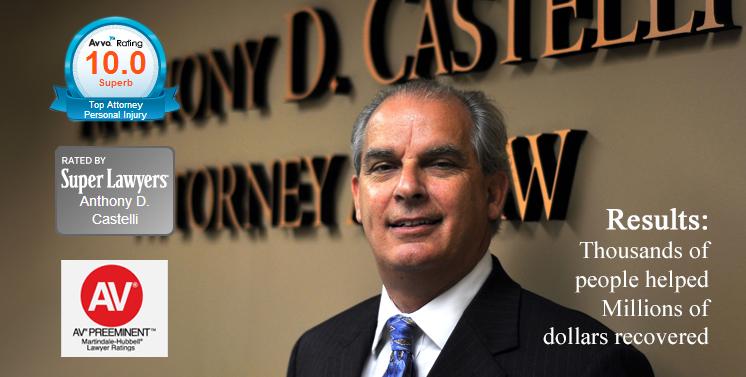Posted: August 13, 2016
Car accident caused hearing loss claims can be diificult to prove. Recently I had the occasion to represent a 60 year old woman that claimed such a loss. What made for a skeptical insurance adjustor was that there was confusion on the part of my client whether her head struck any object. My job was to convince the adjustor that the trauma of the car crash was a proximate cause of the one sided (unilateral) hearing loss.
How To Prove a Traumatic Hearing Loss From a Car Accident
The critical steps and tactics of proving a hearing loss from a car accident are to prove the the hearing loss is consistent with the trauma. Some researches suggest that it is not necessary for the head to actually impact an object. All that is necessary is the jarring of the head is enough to damage internal structures. This is often called a acceleration- deceleration injury. It can go by the name of whiplash.
However, pragmatism plus science is the best way to win a claim of traumatically induced hearing loss. By that I mean if there is little if any impact damage most adjustors and in consequence juries will not conclude a serious injury was caused, even though scientific calculations can come up with significant g forces to alter tissues.
Numerous monographs have been written about low impact soft tissue injures and the reality of them. However most jurors will turn away an injured party as not believable or downright fake. So some significant visible car damage is always helpful in presenting and convincing injurious consequences from a car accident.
In addition to a mechanism of injury consistent with hearing loss there are multiple other things to consider. Of course the opinion of the treating doctor is critical. Without such an opinion there will be no case. The opinion must be based on probability and not just possibility.
The doctor's report should discuss oblective testing and contain an accurate history of the events leading up to the hearing loss.
Also other causal influences should be eliminated as well as whether the hearing loss was preexisting.
A learned treatise or medical article on the subject should also be included. All of the evidence should be provided to the adjustor in a chronological fashion. A settlement brochure ciiting to the exhibits giving a thorough explanation of why the hearing loss was caused by the car accident is the center piece of the succesful claim.
Several medical articles were easy to find that supported the fact of traumatic hearing loss from car crashes without the necessity of direct impact to the head. In Head Trauma: Hearing Loss and Dizziness from the Journal of Trauma-Injury Infection & Critical Care by Dennis Fitzgerald M.D, the following was stated:
"....many physicians are suspicious of patients with hearing loss and dizziness resulting solely from whiplash injury. Yet rear end collisions at only 8 mph generate 5 g of forces on the occupant's head. Such force has been shown to produce injury to brain stem, cerebral concussion and cranial nerve stretch in 50% of the monkeys subject to it."
A Review of the Otological Aspects of Whiplash Injury by Robert Trantner gives further creedence to whiplash induced hearing loss. It discussed the importance of an audiogram and the likelihood of high frequency hearing loss. http://www.robert-tranter.co.uk/pdf/whiplash.pdf
How To Request a Medical Report
It is important to provide adequate background to the doctor when requesting their medical report. In the case at issue I described the collision. I gave immediate symptoms and the treatment. I documented symptoms up to the time the ear nose and throat doctor saw my client.
My questions were simple:
- What are the diagnosed conditions that were caused, more likely than not, by the motor vehicle collision.
- Was the hearing losss permanent.
- How did the doctor reason to the conclusion that the hearing loss was caused by the auto wreck.
- What is the nature and extent of the hearing loss and how significant is it.
The Medical Doctor Responds to My Letter
The specialist gave the history that he had gotten from my client. He then responded to my 4 questions item by item.
He based his opinion that the left side sensory neural hearing loss was related on her history of the car crash and subsequent hearing loss and the audiogram. He felt a hearing loss of this nature was consistent with a head injury.
He felt that since it was a nerve injury that the hearing loss was permanent. He felt that a hearing aid could help with speech discrimination.
He made the point that there was no prior audiogram so he could not state with absolute certainty that the hearing loss was not present. However we had multiple friends and family available to file their affidavit of our client's good hearing. There was never a question in the prior medical records that our client had any hearing problems or head or ear injury.
Hearing loss claims when worked up properly can have settlement value in six figures if there is enough insurance coverage. A poorly worked up hearing loss claim may settle for very little or force a jury trial .
About the author:
Anthony Castelli has practiced Ohio personal injury law ( injury to the body, mind, or emotions) based out of Cincinnati Ohio for over 30 years. He is available for a free consultation is serious injury claims and seeks a happy result for his many satisfied clients.


